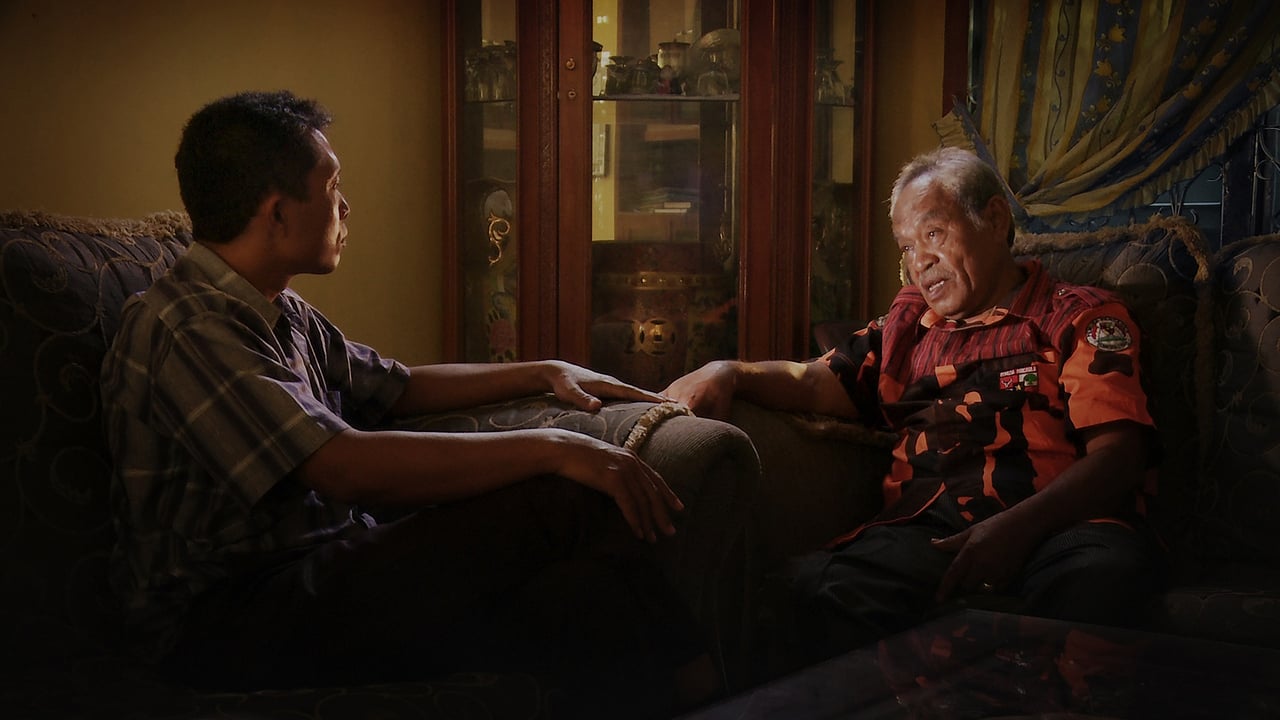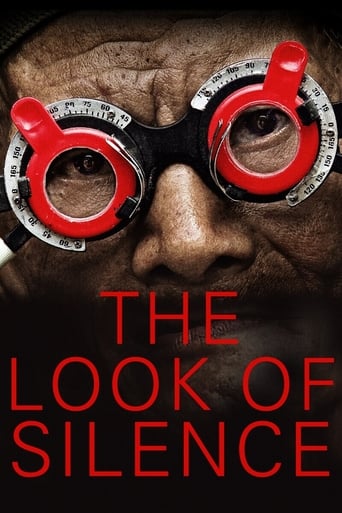

Boring
... View MoreVery interesting film. Was caught on the premise when seeing the trailer but unsure as to what the outcome would be for the showing. As it turns out, it was a very good film.
... View MoreThere's no way I can possibly love it entirely but I just think its ridiculously bad, but enjoyable at the same time.
... View MoreA clunky actioner with a handful of cool moments.
... View MoreIt's hard to "review" a movie like "The Look of Silence". You don't really watch it and evaluate it like you do anything else. You bear witness.I have never been able to write anything about its prequel, "The Act of Killing". I broke my rule of reviewing every movie I watch on here because I just wasn't up to the task. Watching that movie, and "The Look of Silence" to a slightly lesser extent, was like being dosed with heroin and hit with a sledgehammer. The usual "disturbing" movie, documentary or otherwise, has an impact that can be shaken off eventually. With "The Act of Killing", I never really felt it, but I knew it was there. It took something from me. The impact bled through into my day to day life. It wasn't just like a bad dream. It was real.Here is "The Look of Silence". It gives a different side of the story that "Act of Killing" presented, through the son of survivors of the Indonesian genocide. He learns about the fate of his older brother, killed two years before his birth. Then he confronts some of the killers and their families, though these meetings don't go as you might expect, especially for the son, Adi.This movie really should be watched alongside "The Act of Killing". Whereas "The Look of Silence" is no less horrible in its descriptions of actual murder, I have a feeling that it is the goodness of Adi and his family you will remember.
... View MoreNominated for an Oscar for Best Documentary in 2015This is a sequel/companion documentary to THE ACT OF KILLING (2012) about the genocide in Indonesia, this time seen from the POV of the family whose one of its members been murdered.Everything about this is strange. From the calmness of the people talking about the killings, to the calmness of the members of the victim's family. It's like everything is either trivial or told from a distance.Plus, there is the strange situation of people talking about forgetting and forgiveness, while obviously remembering everything and basically threatening the brother. Again, very strange feeling throughout the entire movie.Like the previous film, there is a strange feeling of trivializing genocide and brutally murdering of people. I thought the first movie was better constructed. This film feels like bits and pieces of interviews without a real coherent structure.
... View MoreThe Look of Silence is such a brilliant title for this movie. For one, it's a good description of Adi's reaction when hearing about the murder of his brother. (And it's oddly fitting that he is an optometrist). It's also a description of the response they get from the perpetrators, refusing to show any guilt or remorse, preferring to pretend that it never happened. And that seems to be what Oppenheimer is tapping into in Indonesia, the look of silence, and what really lies behind it.This is definitely a companion piece to the previous "Act of Killing". Not because it does not stand on its own, which it does, but because they stand so much stronger together. Each documentary has an unique perspective on some mutual themes. Especially guilt and remorse.It's amazing how it all comes together in a movie like this. Oppenheimer must have done a lot of work for this. Adi is such a good subject for a documentary like this, and having him being willing to explore this dark side of his nation's history, and openly talk to the people who brutally murdered his brother - it's such an unique way to explore all of this. And Adi does a really good job with it all.
... View MoreI didn't really know much about the mass killings in Indonesia in the 1960's before watching this documentary, but something about it was so compelling and unbelievable that it practically was a mini-ww2. The Indonesian government at the time were very much like Nazi's, which is sickening, and this documentary brings light about the disgraceful ways religious propaganda can persuade people to kill.What I got out of this documentary was that many of the killers didn't know what a communist was, let alone think they were people. They were spun lies about the communists and many took joy in killing them. One of the most eye opening documentaries I've seen, amongst one of the most sadistic and terrible mass killings in history.
... View More